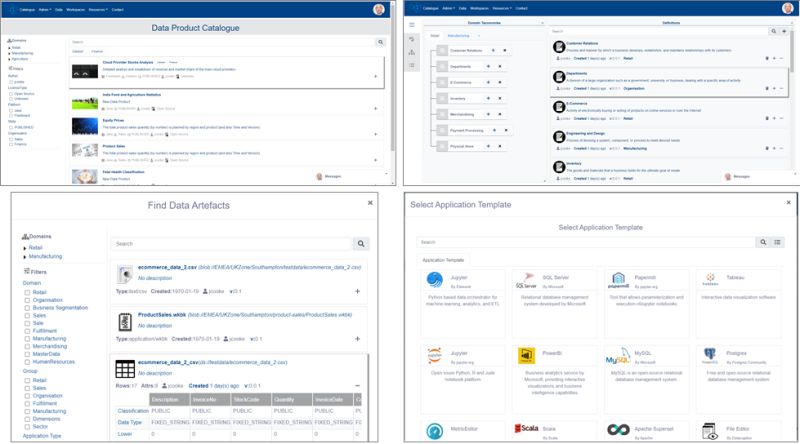There’s been a lot of buzz around data catalogues, and rightly so. They are essential tools for organizing and managing data assets. However, despite the advancements over the last decade, there's still a gap, especially when it comes to the needs of developers. Traditional data catalogues are often used by central governance functions, but developers frequently find them cumbersome and high-friction to use.
From Data Catalogues to Data Product Catalogues
Modern data catalogues have come a long way. They now offer much more than just a dictionary-based approach, with richer metadata and better integration of business context. Yet, the gap persists because these tools don’t fully address the needs of developers or the rising importance of data products.
A Data Product Catalogue goes beyond just cataloguing data. Think of it more like Amazon’s storefront for data products, encompassing not just data, but models, dashboards, metrics, configurations, security, templates, and more. This comprehensive approach can significantly enhance reusability and efficiency in data-driven projects.
Key Aspects of a Data Product Catalogue
In our journey to build a robust Data Product Catalogue, we've focused on several key aspects:
- E-Commerce Shop Front Style Interaction: The interface should be as intuitive and user-friendly as an online shop, making it easy for users to find and utilize data products.
- Integrated Cataloguing UX with Dev Experience: Developers should be able to click on a data product/asset/dataset and directly launch the tech stack to browse data, run Jupyter notebooks, R scripts, Tableau, Spark, etc.
- Beyond Data/Metadata: The catalogue should include full data products such as dashboards, ML models, metrics, and application templates with comprehensive annotations and collaboration features.
- Build Business Glossaries and Taxonomies on the Go: Enable developers (Data Scientists, Data Analysts, BI Developers, etc.) to build business glossaries and taxonomies as part of their workflow.
- Multi-Modal UX: Provide multiple ways to interact with the catalogue, including browsing, searching, and simple Amazon-style classifications.
- Core Technologies: Build on robust technologies like Elasticsearch and ensure a microservice architecture with security and API-driven interactions to integrate seamlessly with enterprise catalogues like Collibra.
Enhancing Your Data Platform
A Data Product Catalogue is a valuable addition to modern data platforms such as Data Mesh, Data Fabric, and Lake House. It aligns with the current needs for agility, reusability, and integrated development environments.

Practical Insights and Considerations
- Metadata cataloguing must be part of the development workflow to be effective because "The metadata are the pipelines. The pipelines are the metadata." This integration is crucial for ensuring that cataloguing efforts are seamlessly embedded in the development process.
- An interesting point about incorporating entity graph relationships into data catalogues is that by adding semantic metadata, mapping taxonomies, and linking data products directly to their use-cases, the catalogue becomes much more than a static repository; it becomes an active part of the data product lifecycle.
- The importance of self-service capabilities and maintaining business glossaries as external ontologies should be highlighted. This self-service approach empowers domain specialists to manage context and governance effectively.
Conclusion
The next step in data cataloguing is here. By transitioning to a Data Product Catalogue, organizations can bridge the gap between governance and development, enhance reusability, and streamline the creation and management of data products. This approach not only modernizes your data platform but also aligns with agile principles, ensuring that your data assets are as dynamic and adaptable as your business needs.
If you're interested in learning more or discussing how to build a Data Product Catalogue, feel free to reach out. Let's transform how we manage and utilize data in the modern enterprise.

